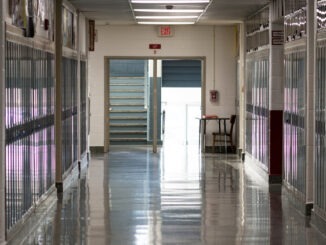
As reported by the BBC, the death of Caversham Primary School’s head teacher, Ruth Perry, feels like one of those rare moments when something fundamental has altered in public perception
Ms Perry took her own life in January, weeks after an Ofsted inspection. The Ofsted report, published after her death, downgraded her school’s rating from Outstanding to Inadequate – going from the top to the bottom of the scale.
It’s as though a dam has burst, with her family blaming her death on the pressure of the inspection and head teachers and teachers coming forward to talk about their own experiences of the Ofsted process.
For some, the prospect of another inspection leads them to leave teaching altogether. Others describe the mental and physical toll of knowing your career is on the line.
There has always been background grumbling in schools about inspection, which has been a feature of our school system for more than 100 years.
In recent years though, there has been a more negative edge to conversations I have had in schools. Even a passing mention of Ofsted has led to spontaneous booing at a couple of professional gatherings of head teachers and teachers.
It’s fair to describe the system as having high accountability and high stakes. A damning Ofsted report can have a domino effect in which the head teacher loses their job and teaching posts remain vacant, as few want to work in a school that has been labelled as failing. That, in turn, makes improvement harder.
This is at the heart of the question of whether Ofsted inspections improves schools or simply points out where they are struggling. Some argue the external scrutiny is vital to hold schools to account and maintain standards.
England’s schools have improved their ranking in some international league tables in recent years, but there is no way of being sure how Ofsted has contributed to that. Other things that might have boosted performance include the introduction of phonics to help primary school children learn to read, and making GCSEs more academically demanding.
Head teachers of schools in deprived and challenged communities complain vociferously about Ofsted, which some feel is weighted against them. A report published in 2022 found schools that were stuck in a cycle of repeatedly weak Ofsted performances tended to have higher numbers of disadvantaged pupils.
The former chief inspector of schools, Sir Michael Wilshaw, is among Ofsted supporters who say the one-word rating system helps to give clear guidance to parents as they try to choose the best school for their child. But the events around Ms Perry’s death have intensified the debate about whether one rating can fully describe a school.
For more than a decade, schools graded Outstanding became exempt from inspection. But since 2020, re-inspections have led to hundreds of previously Outstanding schools being downgraded.
Ms Perry’s school in Reading, which hadn’t been inspected for 13 years, is one of only five out of 359 schools to be moved to the bottom grade since September.
Ms Perry’s school was rated as inadequate overall, despite providing a good education and a welcoming and vibrant community for children. The inadequate rating was driven by failings in training, record-keeping and checks on staff.
Perhaps it’s no surprise that in some of these inspections of previously Outstanding schools, one focus has been what measures are in place to keep children safe: Ofsted has been facing pressure to do more about preventing sexual assault in schools, and in October, the Independent Inquiry into Child Sex Abuse found the regulator ‘did not do enough’ to identify serious child weaknesses in some educational settings.
So where does this debate leave parents who simply want to know what to take from an Ofsted grade, as one part of deciding where to send their children to school?
One recent piece of research shows how difficult it is to be sure. The academics looked at 10 years of Ofsted inspections of secondary schools and how that related to GCSE results five years later.
Once they had taken account of children’s backgrounds, and how well they had done already at school, there was “no detectable difference” between Good, Requires Improvement and Inadequate.
Whether or not the huge reaction to Ruth Perry’s death influences how Ofsted operates, change is certainly on the way for the regulator – chief inspector Amanda Spielman, is standing down at the end of the year.
And while the government strongly supports the current system, the Labour Party has recently said it wants to move from a single-grade system to a report card system for each school, which would replace grades with more detailed information about school performance.


Be the first to comment